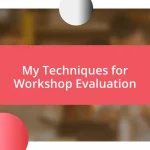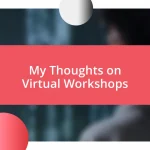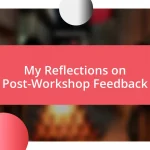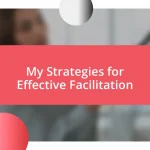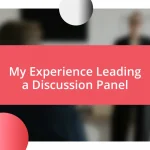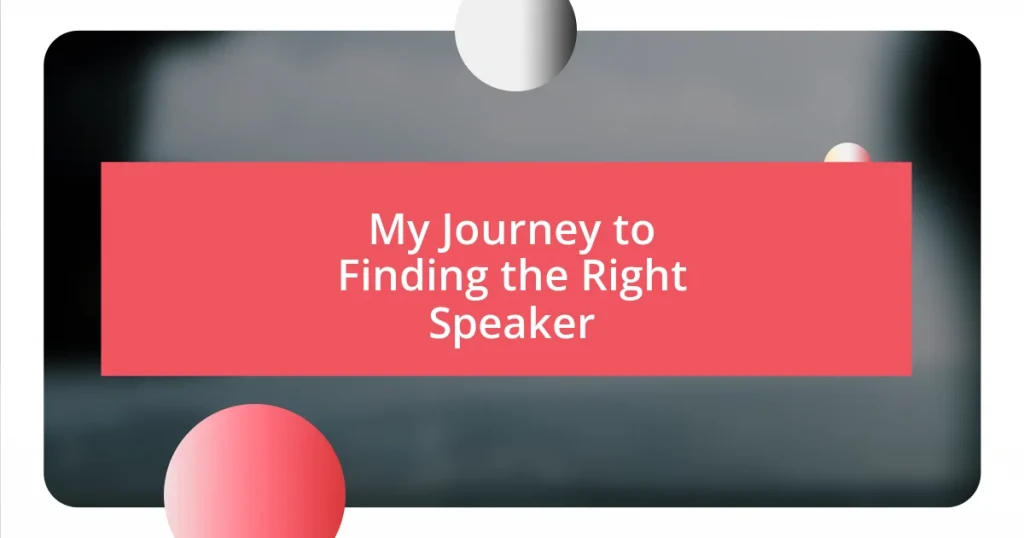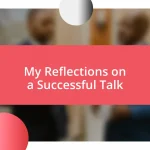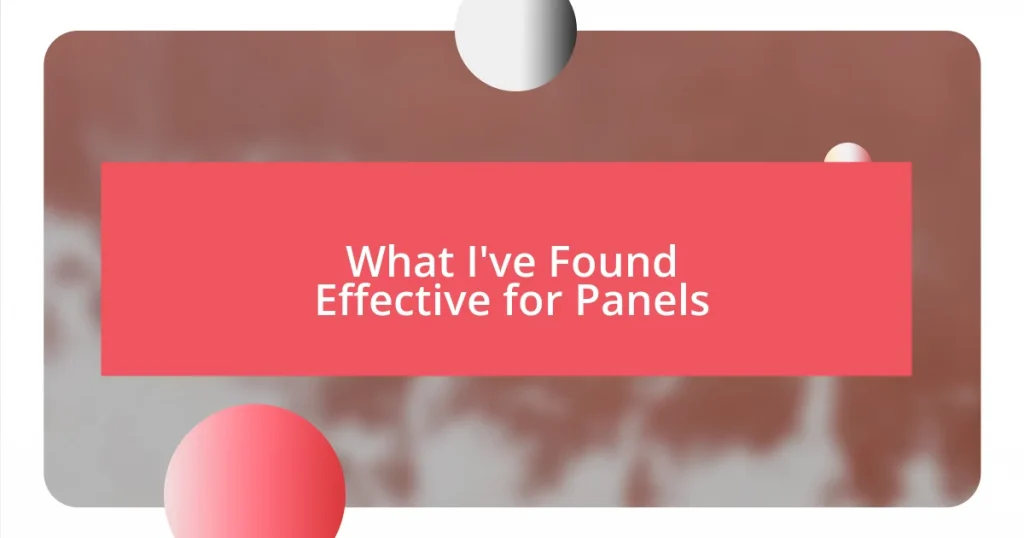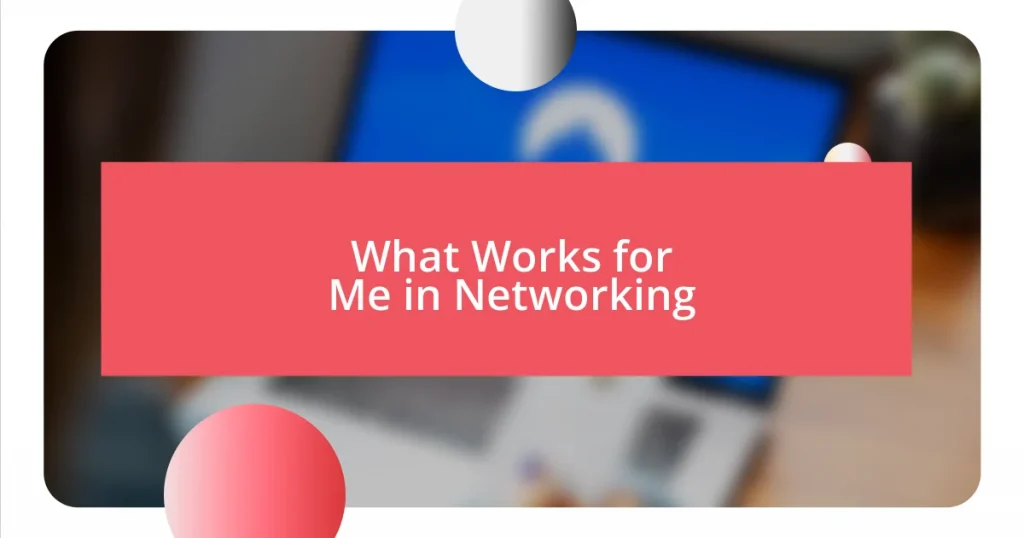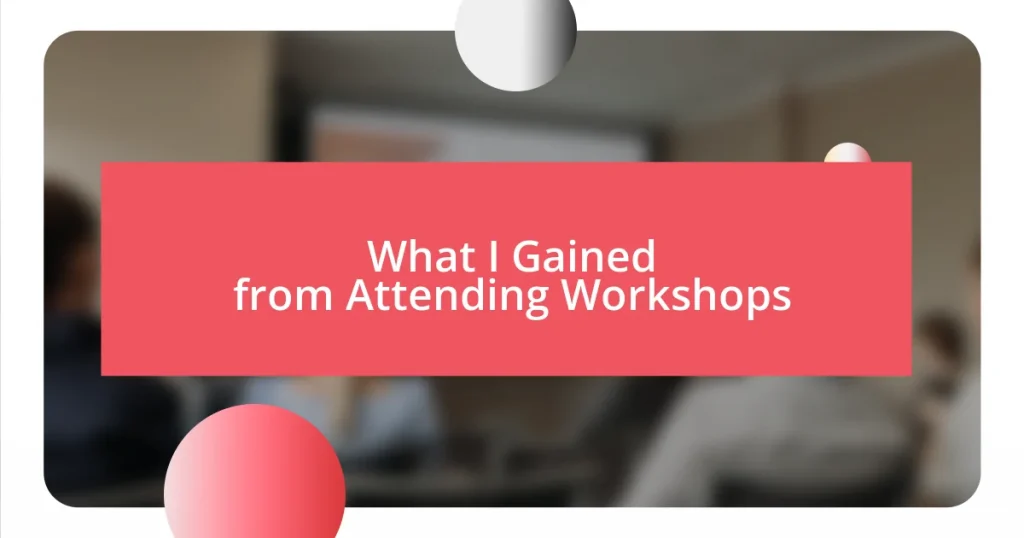Key takeaways:
- Identifying specific needs is essential for selecting the right speaker; consider event goals, audience interests, style, logistics, and engagement level.
- Thorough research of potential speakers, including their backgrounds and audience engagement, is crucial for finding a suitable match for your event.
- During decision-making, balance pros and cons with intuition, as personal connection and excitement about a speaker can lead to a more impactful experience.
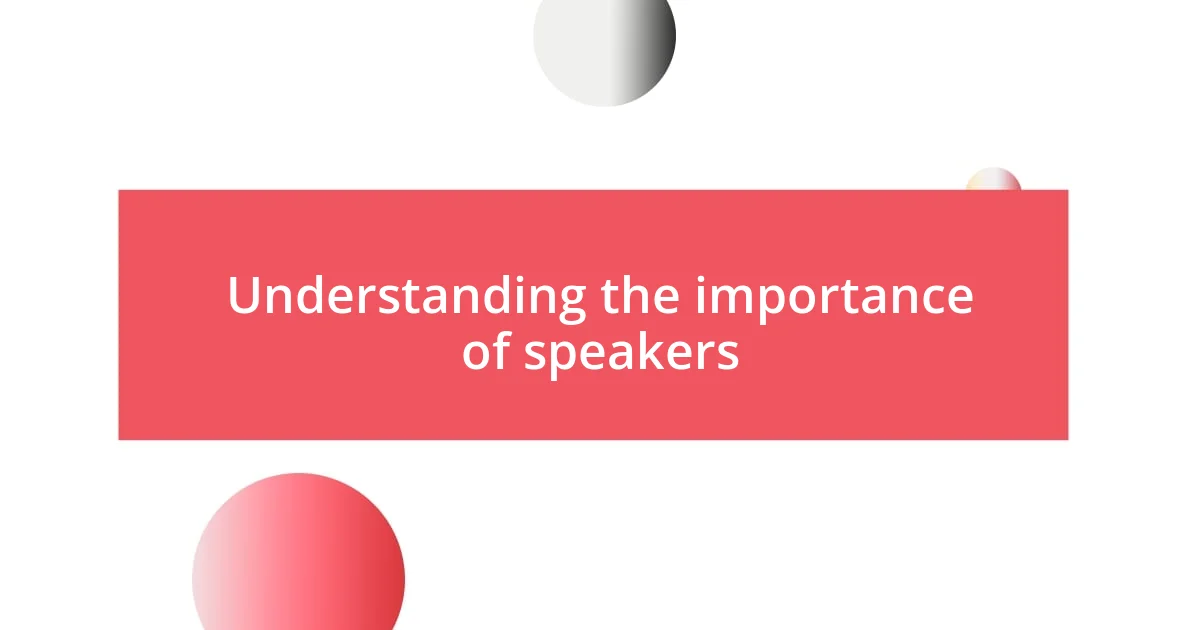
Understanding the importance of speakers
Speakers play a pivotal role in shaping our experiences, whether it’s during a conference, a wedding, or a community event. I remember attending a leadership summit where the speaker ignited a fire in me. Their words resonated on a personal level, compelling me to reflect on my own journey and aspirations. Have you ever felt that exhilarating connection with someone speaking? It’s a powerful moment that can inspire change.
The right speaker can turn a routine gathering into a memorable experience. For instance, I once sat through a presentation that was so dull, I wondered if I could escape without being noticed. The energy was flat, and I realized just how much a speaker’s enthusiasm—or lack thereof—can impact the audience’s engagement. Have you experienced a similar lackluster scenario? It’s a reminder of how crucial it is to connect with the audience meaningfully.
Moreover, speakers hold the unique ability to weave stories that create emotional bonds among listeners. I recall hearing a speaker share their personal struggle with overcoming adversity. Their vulnerability made the room silent and captivated, reminding us of our shared humanity. When a speaker shares from the heart, it invites us all to reflect, connect, and sometimes even heal together. Isn’t that what we all hope for in a good talk?
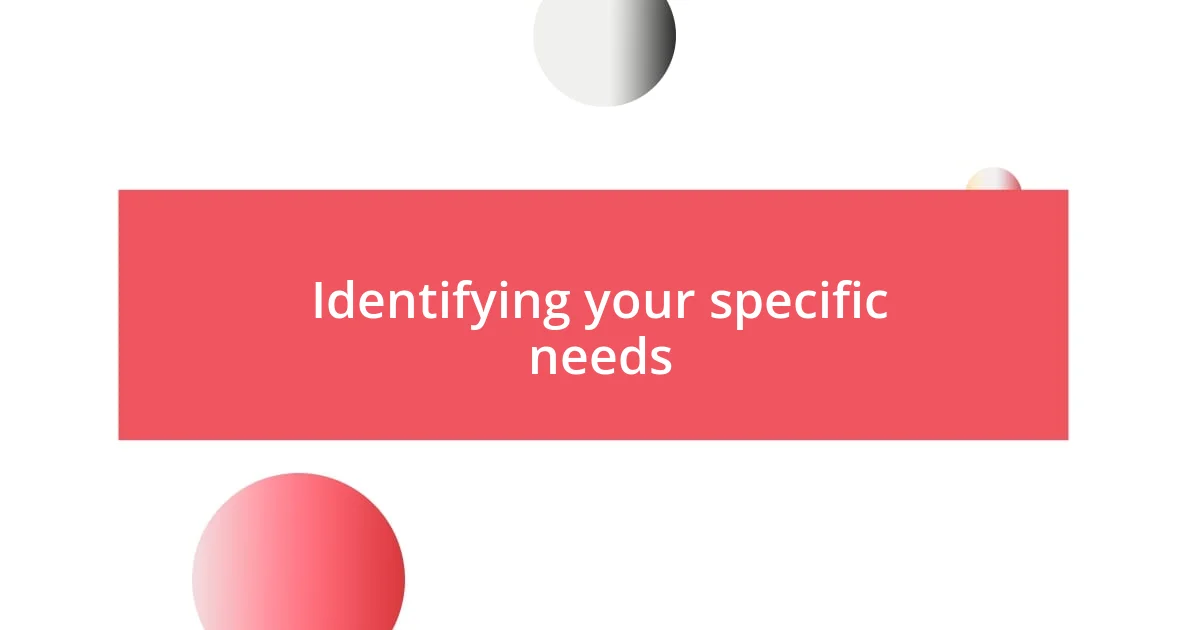
Identifying your specific needs
Identifying your specific needs is the first step to finding the right speaker for your event. I suggest reflecting on the event’s purpose and audience demographics. Once, when organizing a charity event, I realized our audience craved a speaker who could relate to their experiences. This insight helped me prioritize speakers who not only understood our cause but also possessed a similar background.
To pinpoint your needs, consider the following:
- Event Goals: What message do you want to convey?
- Audience Interests: What topics resonate with your attendees?
- Speaker Style: Do you prefer a storyteller, a motivator, or an expert?
- Logistical Considerations: What is your budget and venue capacity?
- Engagement Level: How interactive do you want the session to be?
By carefully assessing these factors, you align your selection process with the unique needs of your event. This clarity makes a world of difference in the outcome of any gathering.
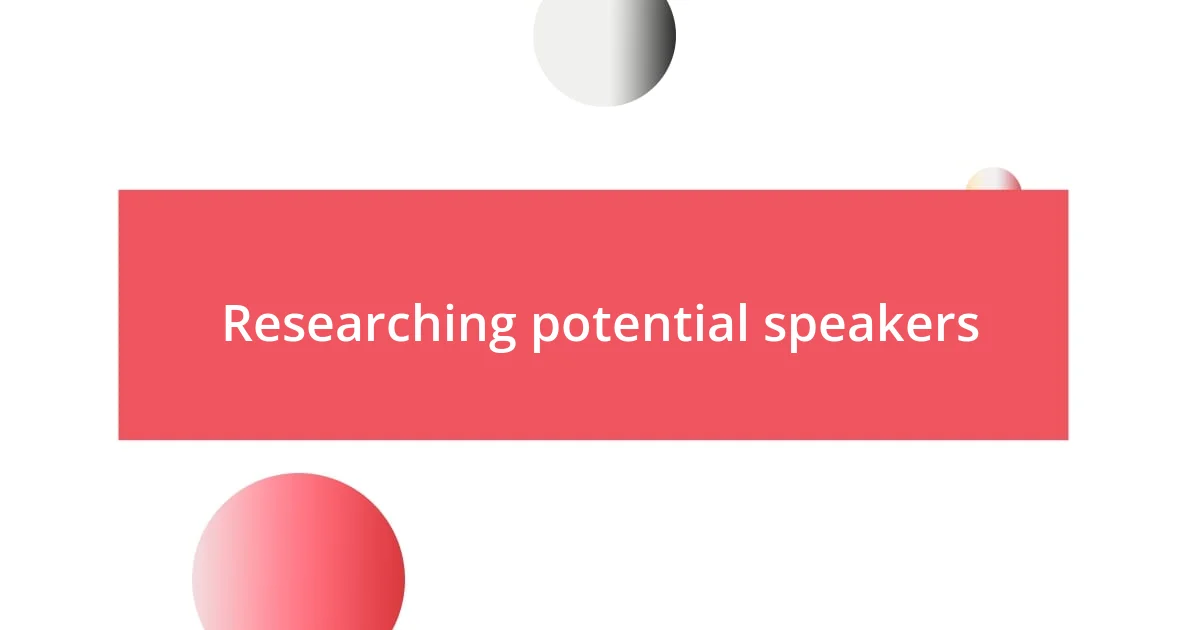
Researching potential speakers
Researching potential speakers is an essential step that can significantly enhance the quality of your event. In my experience, diving deep into the backgrounds and styles of speakers can uncover hidden gems who might not be on the mainstream radar. For instance, while preparing for a recent panel discussion, I stumbled upon an up-and-coming speaker whose unique blend of humor and personal storytelling instantly drew me in. They weren’t widely known, but their passion and expertise stood out.
When I research potential speakers, I often create a fun comparison table that helps me weigh the pros and cons of each candidate. This approach not only organizes my thoughts but also leads to more informed decisions. I remember once listing out potential speakers for a tech conference and being surprised by how many had overlapping experiences, yet their delivery styles varied greatly. Some speakers focused on technical skills, while others emphasized team dynamics. It’s fascinating to see the diverse approaches and how they align with your event’s aims.
Using platforms like LinkedIn, I look for speaker reviews, watch their talks online, and even reach out to past event organizers. I recall attending an online webinar where the speaker was praised for their interactive approach. Curious, I connected with the organizer afterward, learning just how well the speaker engaged their audience through thoughtful questions and live polls. This helped me realize that researching isn’t just about looking up credentials; it’s about discovering the speaker’s true essence and how that connects with your audience.
| Speaker Name | Style |
|---|---|
| Jane Doe | Storyteller, Inspirational |
| John Smith | Technical Expert, Data-Driven |
| Mary Johnson | Humor, Engaging |
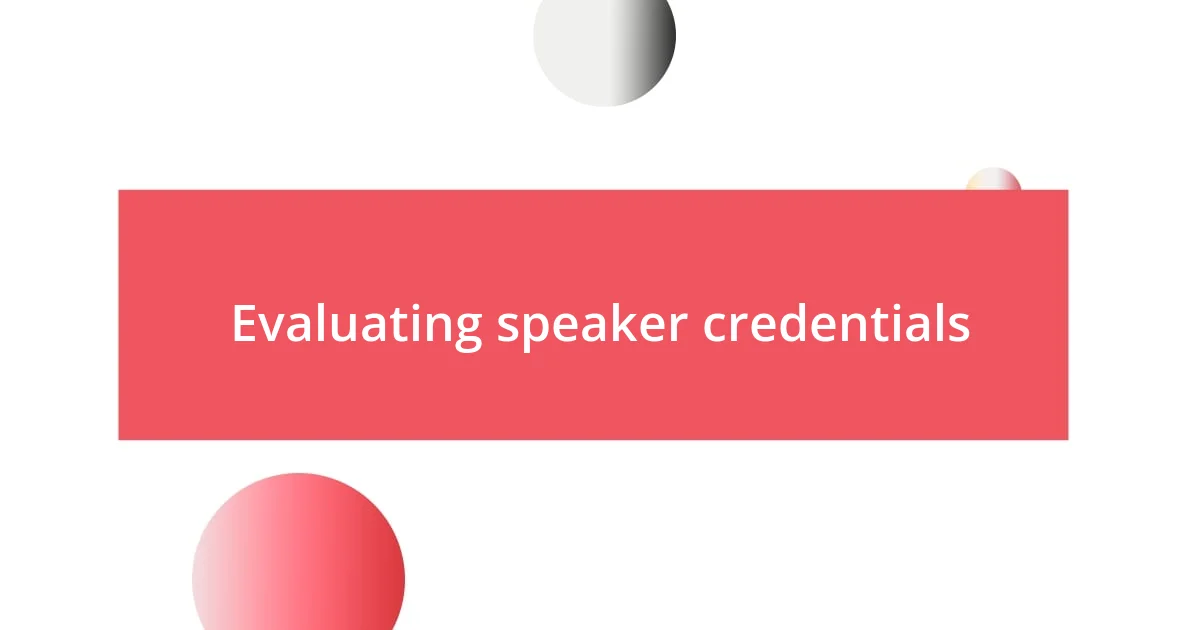
Evaluating speaker credentials
Evaluating speaker credentials is a crucial step that can’t be overlooked. I often start by checking their educational qualifications and professional experience. For instance, I once considered a speaker who had impressive academic credentials but lacked real-world experience. In that case, I realized the importance of hands-on expertise over theoretical knowledge. This taught me that a speaker’s background should not only reflect education but also active engagement in their field.
Another vital aspect is assessing their speaking history. Have they addressed similar audiences or topics before? I remember attending an event where the speaker had a lengthy resume, yet their prior engagements didn’t align with our audience’s needs. Reflecting on that, I understood that not all accolades translate into effective presentations. Rather, a history of relevant experience is what helps foster genuine connections with listeners.
Lastly, don’t underestimate the value of personal recommendations. When I was searching for a speaker for a leadership workshop, I reached out to colleagues in my network. One recommended a speaker who had transformed their workplace environment. Hearing that firsthand endorsement made all the difference in my evaluation process. It reminded me that sometimes, it’s the personal stories and experiences that illuminate a speaker’s true value.
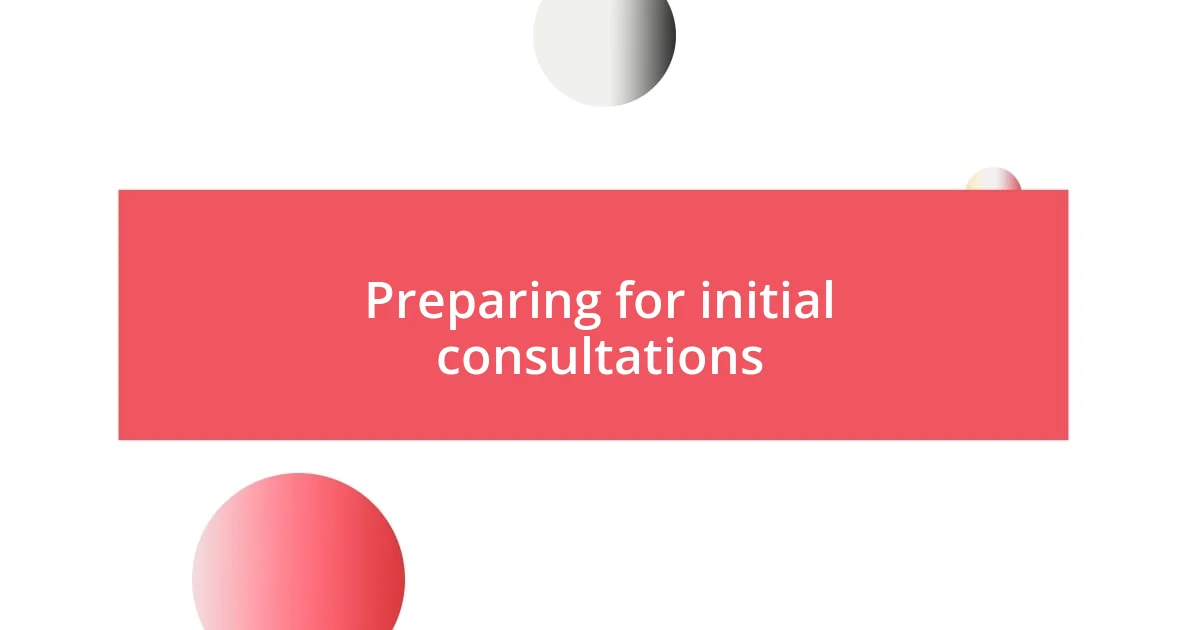
Preparing for initial consultations
Preparing for initial consultations can feel a bit daunting, but I find that setting a clear agenda helps ease the process. Before meeting with potential speakers, I jot down specific topics and questions I want to discuss. This not only keeps me focused but also ensures I gather the insights I need. I remember my first consultation where I was unprepared; I left feeling more confused than enlightened. Now, I avoid that by being deliberate about what I want to learn.
When going into the consultation, I try to create a relaxed atmosphere. I’ve discovered that speakers often open up more when they feel comfortable. After one meeting where I brought in a casual coffee vibe instead of a corporate setting, the speaker shared personal stories that resonated deeply with my vision. It made me realize how important the environment can be in fostering authentic conversations.
Lastly, I always remind myself to be flexible during these discussions. While I have my questions, I find that some of the best insights come from unexpected topics. For example, during a recent consultation, a speaker went off-script and shared their passion for community service, which perfectly aligned with the values of my organization. This helped me see them in a new light and made me question—how often do we miss out on hidden strengths by sticking too rigidly to our agendas? Embracing spontaneity can lead to discoveries that transform the whole experience.
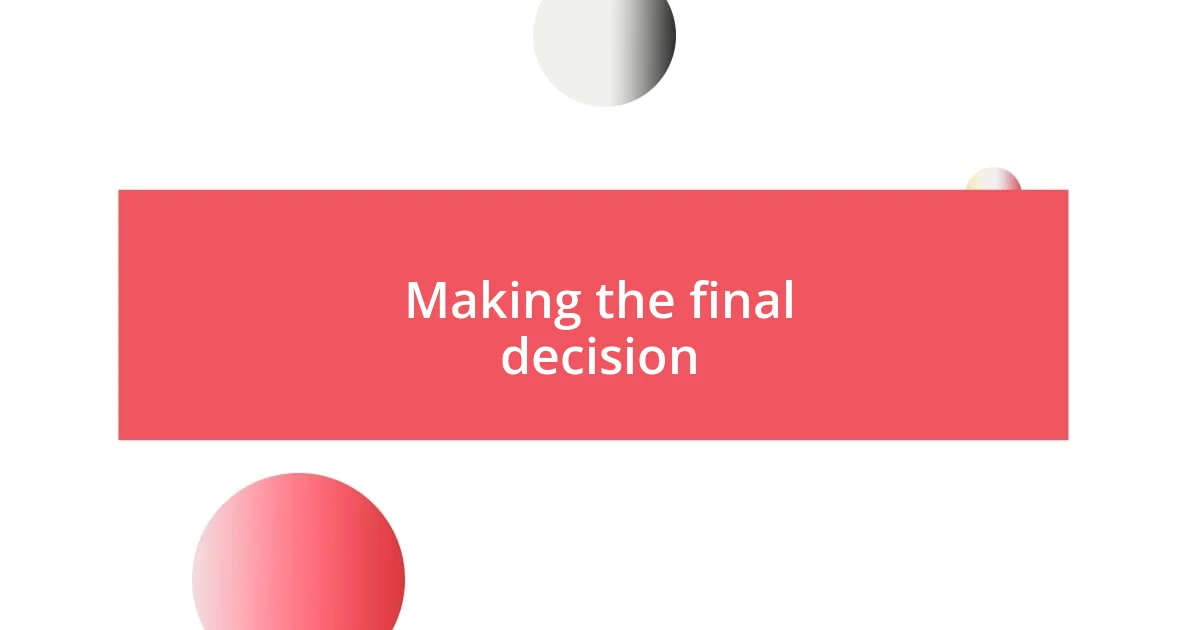
Making the final decision
Making the final decision can sometimes feel overwhelming, especially after all the research and consultations. I remember standing in front of my computer, torn between two speakers who both brought unique strengths to the table. I reflected on past experiences and wondered: which speaker would truly resonate with my audience? This moment of contemplation became essential in shaping not just my choice, but the entire outcome of the event.
Something that consistently helps me is creating a pros and cons list. I once faced a dilemma between a dynamic speaker known for captivating audiences but who had a little less experience in our specific industry, versus a more conventional yet seasoned professional. As I wrote down their respective strengths and weaknesses, I realized that the energy and relatability I envisioned could lead to a more impactful experience. Have you ever had to make a tough choice in this way? It’s fascinating how actually visualizing the options can clarify what you truly value in a speaker.
Finally, I can’t emphasize enough the role of intuition in this decision-making process. After carefully weighing my options, I found myself leaning towards a speaker who, during our consultations, sparked an excitement in me. It reminded me of a time when I chose a speaker based solely on their passion—despite some doubts about their resume. The event turned out to be one of the most engaging I’ve ever organized. I think it begs the question: are we sometimes better off trusting our gut feelings over the data? Ultimately, that instinct led me to a decision that aligned perfectly with the vision I had for the event.




